Recently, Dr. Victoria Martin gave our group an excellent update on cow’s milk protein allergy/food protein-induced allergic proctocolitis (FPIAP). My notes below may contain errors in transcription and in omission. Along with my notes, I have included many of her slides.
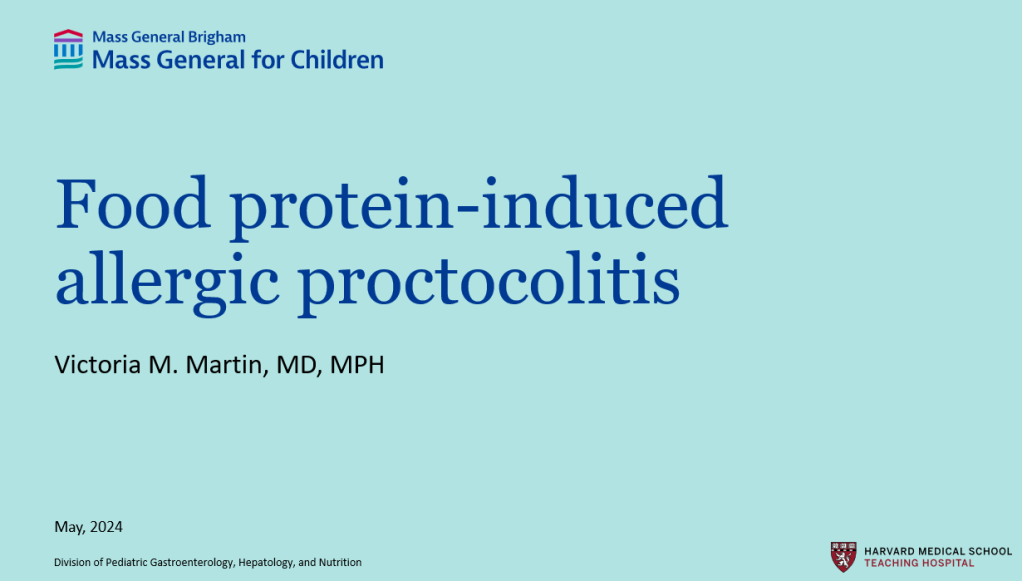
- The nomenclature is not perfect. FPIAP was used for this presentation –though many don’t truly have proctocolitis and others may have involvement in other parts of GI tract
- There is not a good biomarker for FPIAP
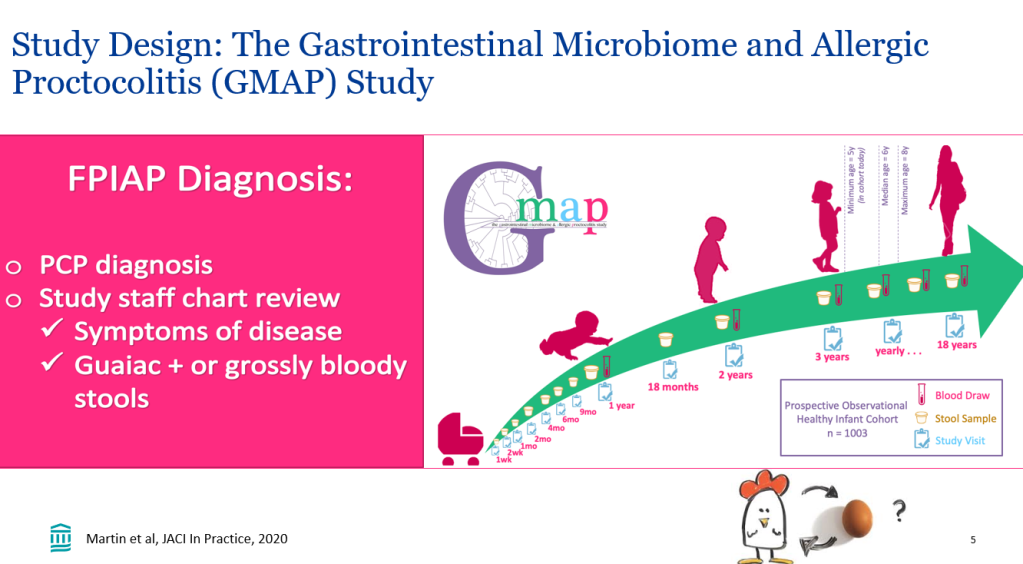
- Victoria and her colleagues have a cohort of 1003 children who were enrolled at their 1st well-child visit as part of their Gastrointestinal Microbiome and Allergic Proctocolitis (GMAP) study. These participants are now ~8 years old and will be followed until they are 18 years old
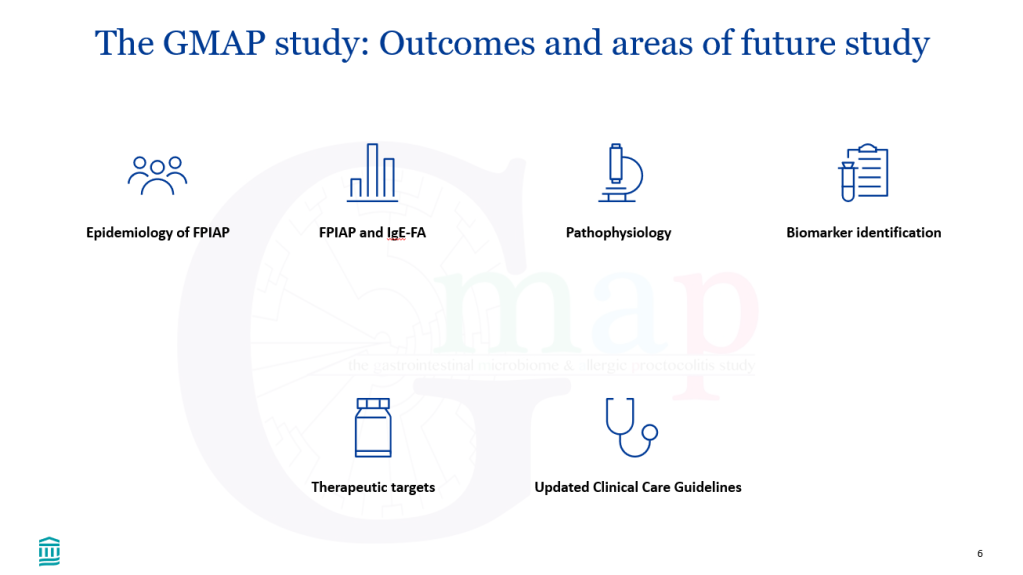
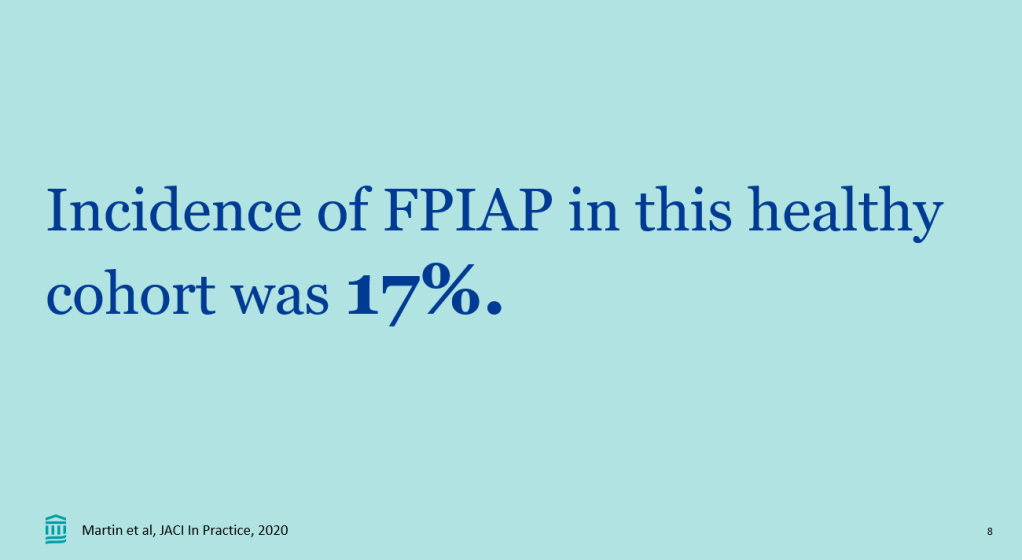
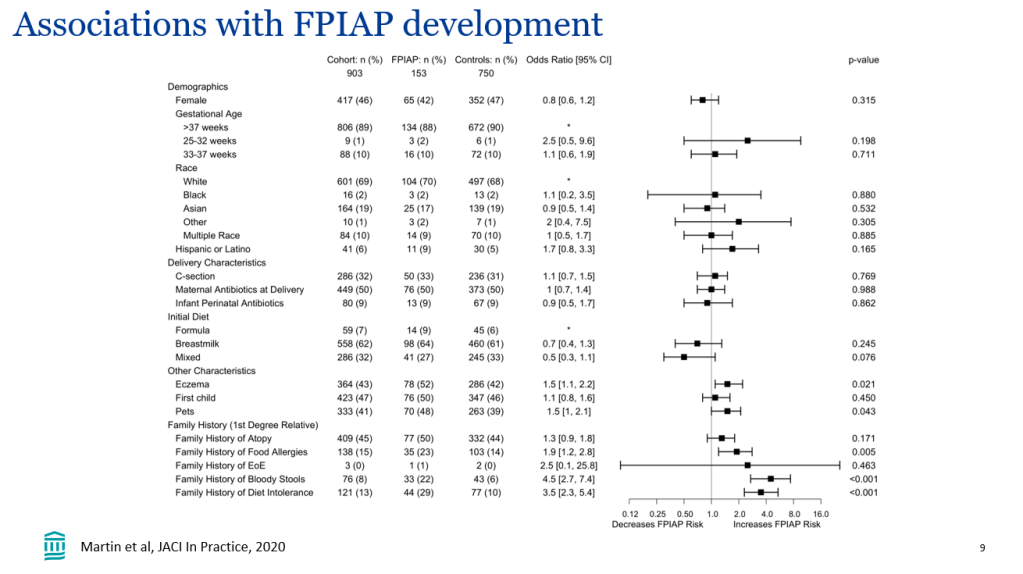
- In the GMAP cohort, 17% were given a diagnosis of FPIAP (mainly by PCPs). This group had increased likelihood of eczema, family hx/o food allergy and sibling with FPIAP.
- The presence of heme-positive stools, vomiting and fussiness are common and usually do not require dietary restrictions unless other symptoms are present (eg. diarrhea, visible blood)
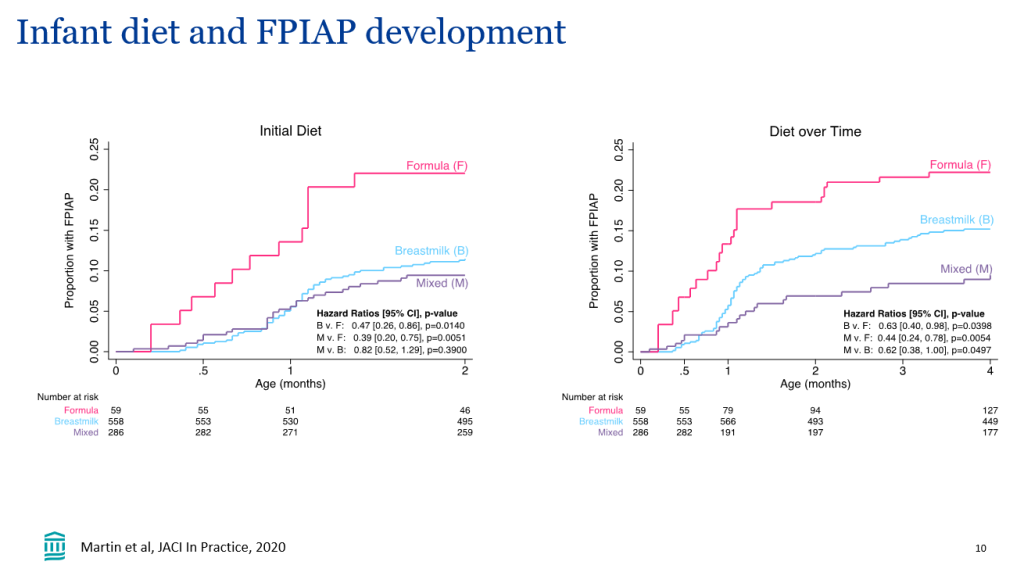
- In the GMAP cohort, the risk for FPIAP was higher if fed formula than breastfeeding. However, exclusive breastfeeding was associated with a higher prevalence than those who received both breastmilk and formula
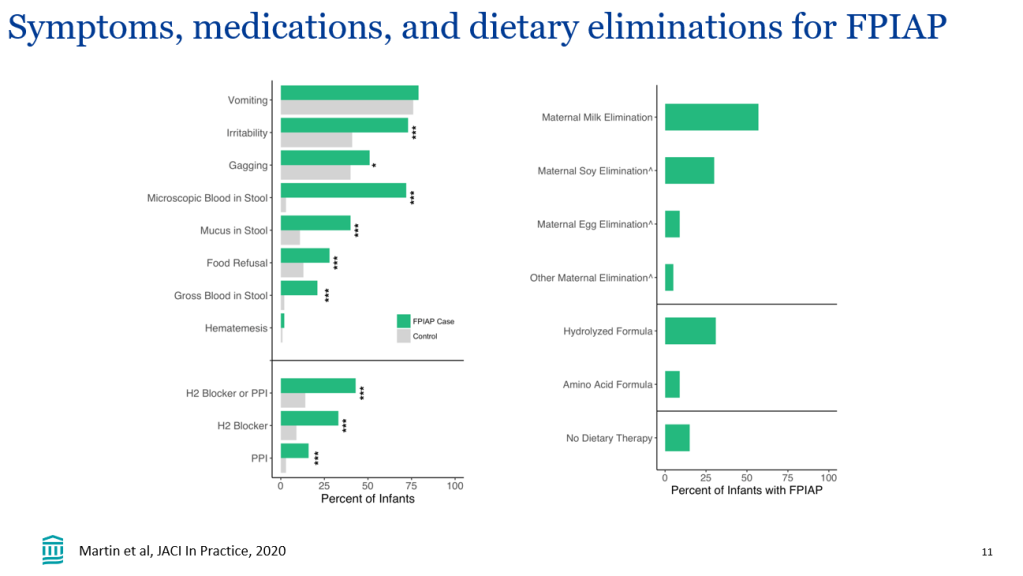
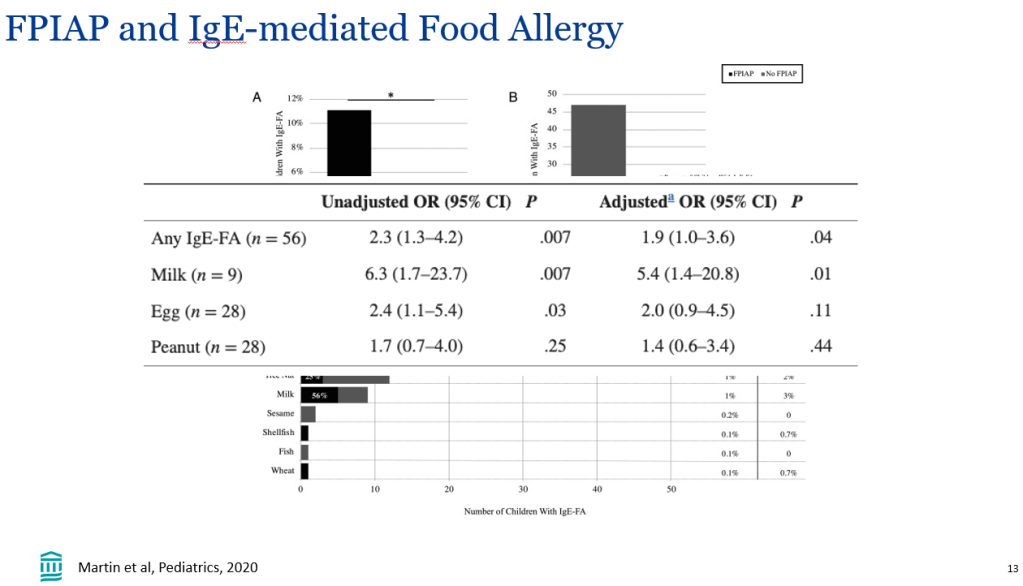
- A diagnosis of FPIAP was associated with a 2-fold risk of developing an IgE-mediated food allergy. (This indicates that early introduction of food allergens may be beneficial as has been shown with peanut introduction.)
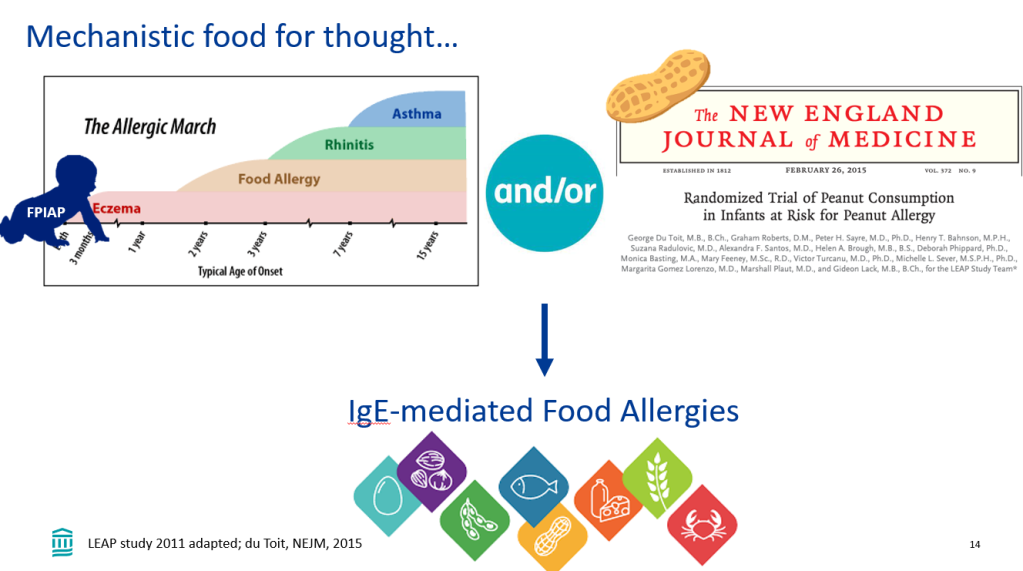
- The microbiome/taxa in FPIAP was unique and present prior to the development of symptoms
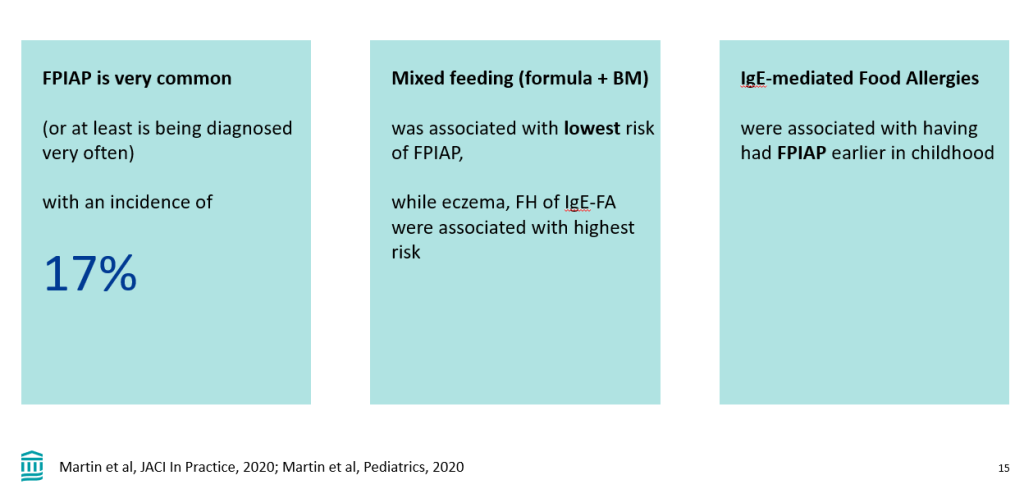
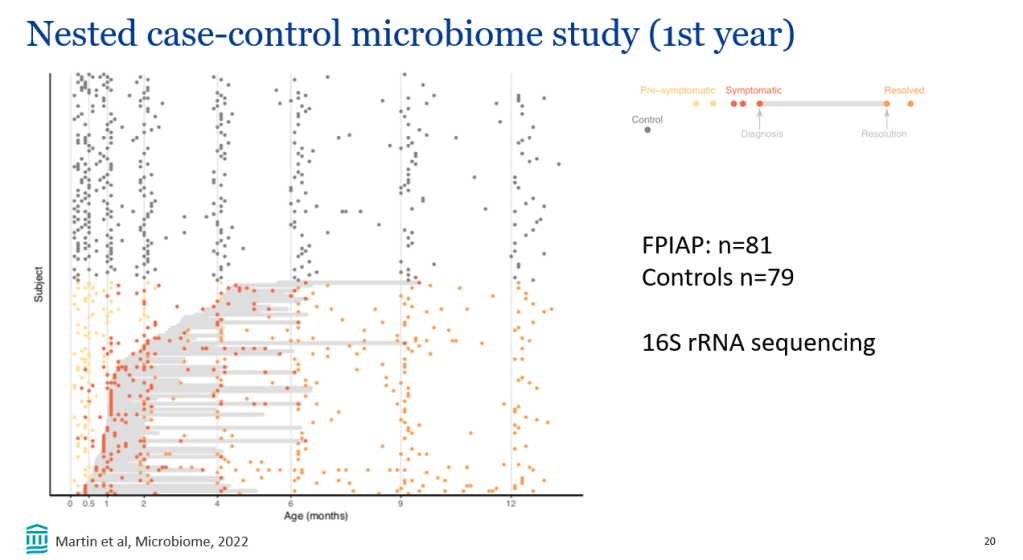
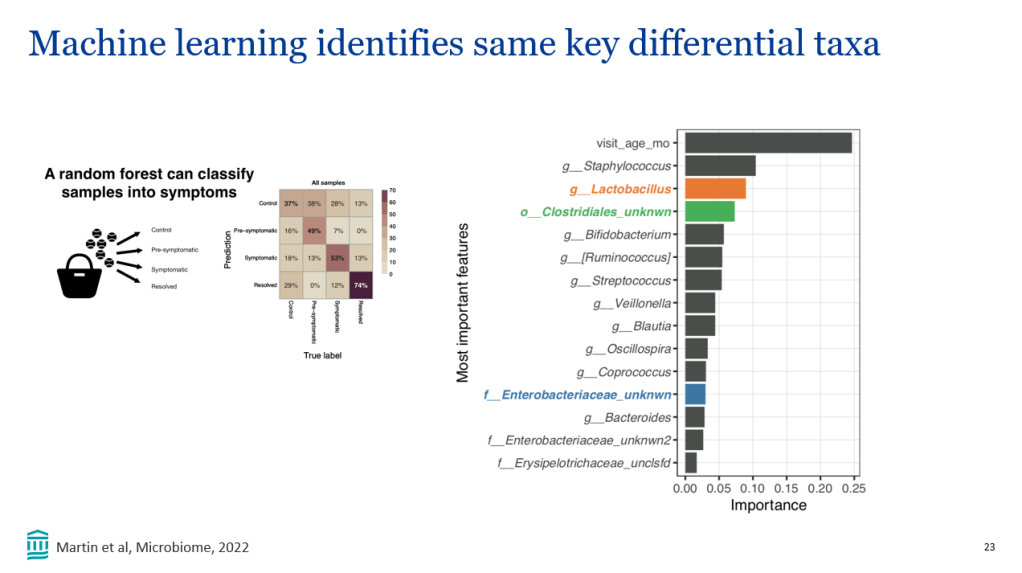
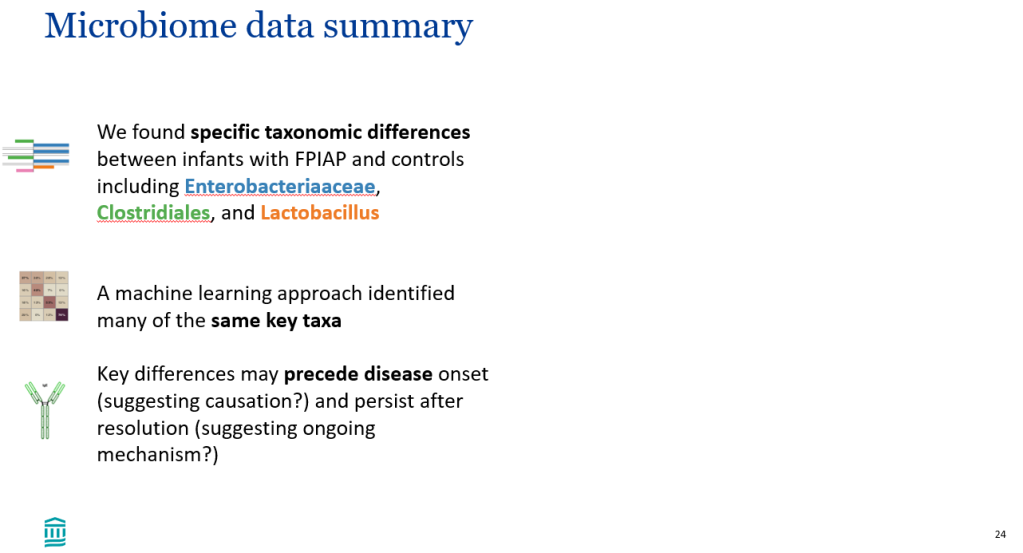
- Unique microbiome differences may be identified in FPIAP cohort that precedes and follows FPIAP symptoms
- Allergy testing is generally not helpful in infants less than 6 months of age with FPIAP. RAST testing less than 6 months of age is not sensitive and most FPIAP is not IgE-mediated
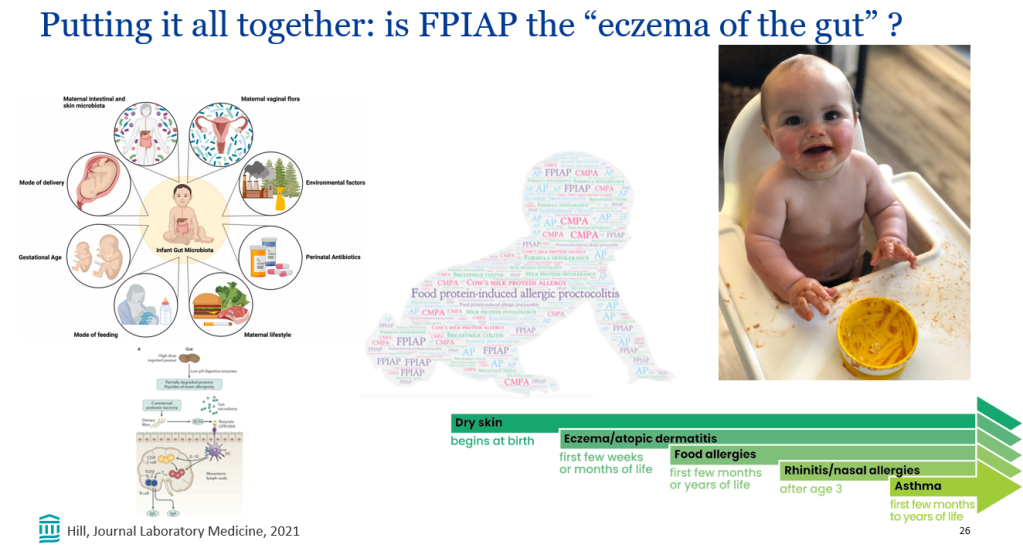
- FPIAP may be analogous to eczema of the GI tract
Related blog posts:
- Good Bowel Sound Podcasts: Cow’s Milk Intolerance and Hirschspurng Disease
- ESPGHAN Guidance for Suspected Cow’s Milk Allergy in Infants
- Current Approach for FPIES (2023)
- Allergy Prevention Strategy: Early Exposure Beneficial (Long-term Data for Peanuts)
- Overdiagnosis of Milk Allergy in Infancy and New Consensus Recommendations
- Overdiagnosis of Cow’s Milk Protein Allergy in Infants and Formula Industry Influence
- Best of Allergy Articles 2021 -Cow’s Milk Allergy/Allergic proctocolitis (Part 4)
- Best Allergy Articles 2021 -Cow’s Milk Allergy (Part 3)
- Best Allergy Articles 2021 -Cow’s Milk Allergy (Part 2)
- Best Allergy Articles 2021-Cow’s Milk Allergy

Pingback: Dr. Victoria Martin: Management of Cow’s Milk Protein Allergy/Intolerance : Are We Causing More Harm Than Good? (Part 1) - reviewer4you.com